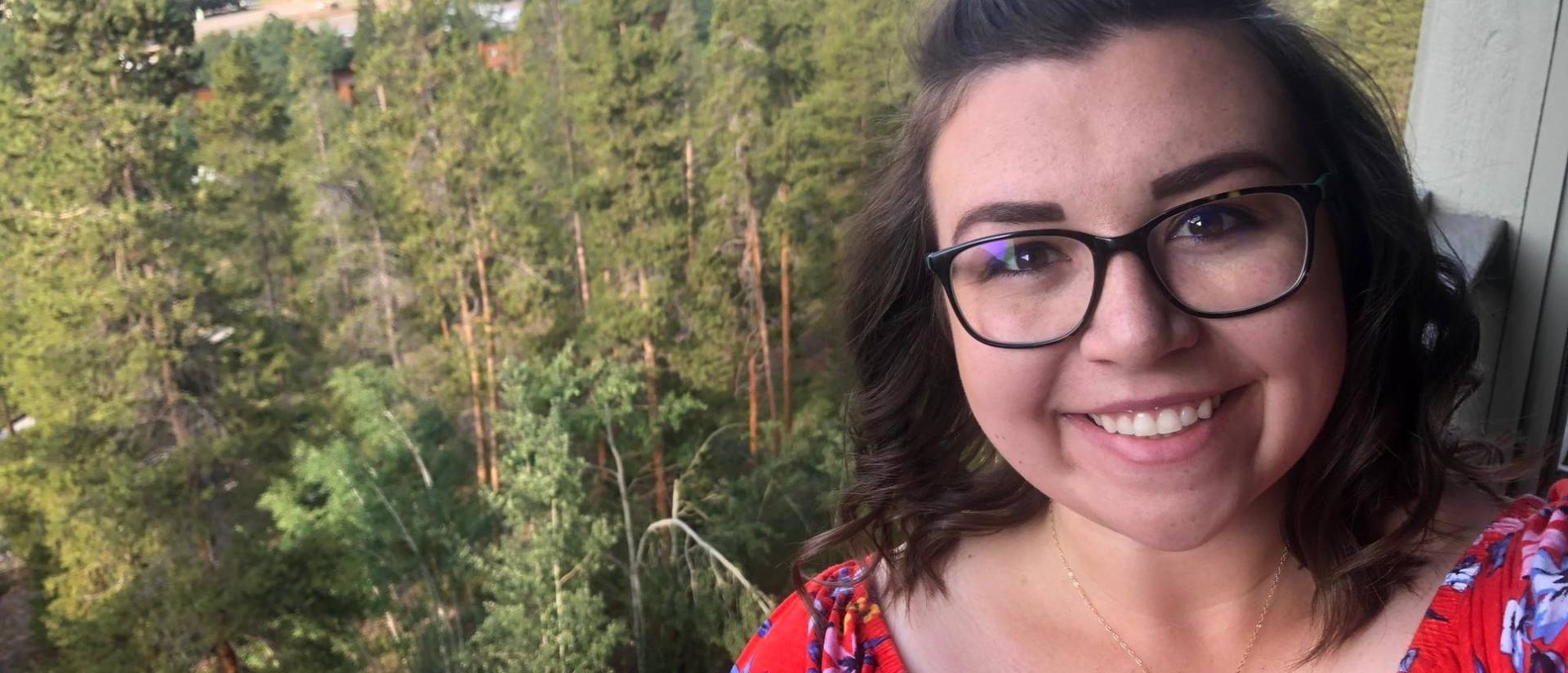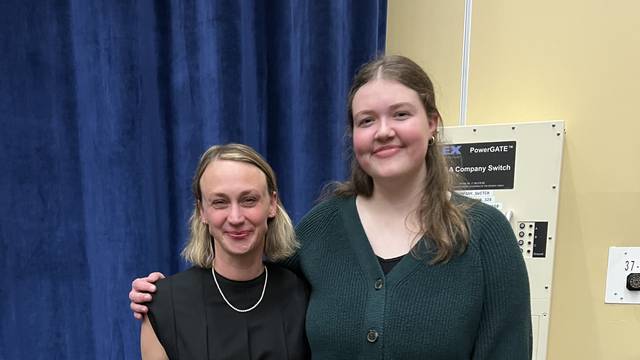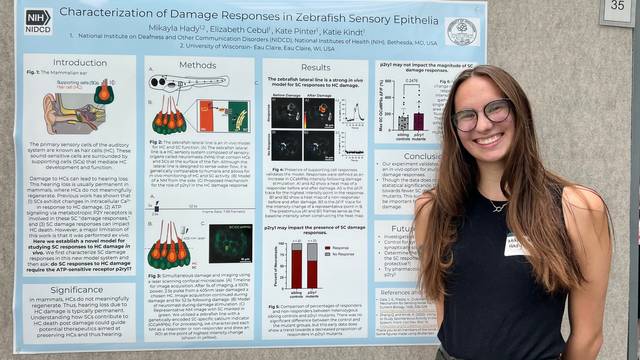Honors instructor Avonlea Hanson works at UW-Eau Claire as an information systems consultant with Learning & Technology Services and as an instructional design consultant with the Center for Excellence in Teaching and Learning. For those who may be unfamiliar, the field of instructional design involves the development and creation of learning materials that facilitate efficient and effective knowledge acquisition. The practice of instructional design is prominently used to assist in course design and developing teaching strategies, especially when it comes to incorporating technology into a course’s structure.
This background in instructional design provides the foundation for Hanson’s Honors 171 course, “Adulting 101.” In her course, students improve their real-world, “adult” skills like money management, work/career progression, self-care, and cooking. Then, they take the knowledge they’ve gained and learn how to effectively convey that information through multimedia learning modules, using the process of instructional design.
In 2018, when Avonlea was first approached with the possibility of teaching her own course in Honors, she contemplated the challenge of teaching a course through the lens of instructional design, which is a field she notes is usually only offered at the graduate level. At first, she felt intimidated by the task of reworking this knowledge for an undergrad audience, as well as how to scale such a vast field of study down to a 14-week course.
However, she was spurred on by the excitement of getting the opportunity to teach a course that would cover topics that she herself wished she had learned as a young adult—things like proper laundry care, the process of buying a house, or getting a mortgage. She also knew that, even though an Honors course would bound to have students from a wide variety of majors, the principles and practice of instructional design “can be utilized in any career field,” explaining that instructional design has a place “in healthcare, in business, anywhere people are learning.”
Avonlea was surprised with the amount of interest in a course and topic that was so new to many students, but was excited to see the creativity her classes exhibited while interacting with the material, especially considering her course is designed specifically to be taken online, which she recognizes can be intimidating for some students.
But that isn’t the end of Avonlea’s work within the Honors Program. She also teaches an online section of the HNRS 400 Senior Honors Seminar, which is meant to act as a capstone for Honors students where they can reflect back on their time in Honors but also look ahead to their futures. In the seminar, Avonlea’s goals are to give her students the skills and time needed for meaningful personal reflection. She recognizes that this type of reflection is much easier said than done, but that is precisely why it is so important to do. When reflecting on the past, she believes that if her students can “identify the good, bad, and the ugly, [they] can look forward with clarity.”
This idea of clarity is one of Avonlea’s major guiding principles as an educator. She believes that effective teaching relies on being clear with regards to what the students are meant to learn, what specific skills are being honed, and what the actual purpose of the lesson is.
She is also driven by the goal of creating meaningful connections with her students. Even in an online class, she understands the importance of getting to know “the person behind the screen.” Forging these connections with her students makes witnessing their growth even more meaningful. She was able to see this growth when she had one of her students from one of her very first HNRS 171 sections again years later in her Senior Honors Seminar, and witnessing this kind of growth and seeing the fruition of the connections she has made remains one of her favorite parts of working with Honors.




